myBillBook’s ‘Tum Kamal Ho:’ An ode to India’s MSMEs
myBillBook, the GST billing and accounting software developed by neobanking start-up FloBiz, has released an MSME anthem, ‘Tum Kamaal Ho’, as an ode to MSMEs’ contributions to India’s growth narrative and assisting the nation in moving forward with the Aatmanirbhar Bharat aim. Bollywood actor Manoj Bajpayee, myBillBook’s brand ambassador, launched the song on the occasion of MSME Day 2022, which is widely observed on the 27th of June each year. It effectively highlights the obstacles that MSMEs confront on a daily basis, as well as the daring and inventiveness they demonstrate in creating unique solutions.
The four-minute anthem video captures the hopes, aspirations, struggles, and the indomitable spirit of India’s MSMEs – wholesalers, distributors, small-scale manufacturers, general stores, self-owned businesses, service providers, and retailers – and expresses confidence in them to shape the country’s economy. The lyrics for the video are relevant since the words are drawn from MSME owners’ everyday usage, and the pictures depict the typical business life operations and struggles of SMEs, as well as their rigour and unwavering resolve to keep going.
To know more about the concept and making of the MSME anthem, AdGully caught up with Pulkit Saboo, Director - Brand Marketing, Flobiz. Excerpts:
What was the thought behind the concept for ‘Tum Kamal Ho’? Who is your TG that you are targeting through the anthem?
We wanted to create something totally different, something which none of the brands or any of the institutes that have been working for the cause of MSMEs have ever tried. It was a first principle approach that we had. We contemplated a lot of ideas, ranging from something very simple, like doing a webinar or maybe doing an award ceremony, but then as a team, we felt that all these initiatives are typically very short-lived; they will not have a long-term shelf-life and they won't be really memorable. We wanted to do something that stays very close to our customers' hearts and speaks directly to their hearts.
After a lot of contemplation, suddenly one day this eureka moment came, and we thought that ‘hey, let’s do something called the MSME anthem, which no one has ever done.’ When small-scale business owners, or rather a large number of business owners, travel to their workplaces, they will typically tend to listen to something. The idea was to create something memorable, something that gets played repeatedly, gets communicated repeatedly, and then something that creates sort of conversations. And that’s basically how the idea of doing an MSME anthem came up.
The reason we actually came up with the particular title of the track, ‘Tum Kamaal Ho’, is because, as an organisation, we always have a very deep-rooted feeling that this set of SMBs, who contribute to 30% of the country’s GDP, are mostly underplayed in terms of recognition. While there are a lot of government policies and initiatives, like the ECLG scheme or the Make in India initiative by the government, which have been promoting these businessmen, more often than not, they tend to get forgotten as long-lost heroes. They are the people who kept the economy running on wheels, when the entire nation was on lockdown, but they are not often celebrated properly. And that's the reason we wanted to champion the cause. We wanted to celebrate them, and that’s how we came up with the title ‘Tum Kamaal Ho’.
What kind of impact do you expect the anthem to have on the MSME market?

 What strategies do you have in place going forward for MSMEs?
This piece of content was not a brand awareness campaign or an advertisement per se. This was very clear in our minds. We didn’t want to use it as an advertising concept, but we wanted it to be a part of their lives. We wanted them to really relish this, enjoy this, talk about it, and even feel motivated at times when they hear the tune of ‘Tum Kamaal Ho’, and that’s the clear-cut reason why we have decided to shift from our advertising approach to more of a collaborative approach.
When you look at the video or when you hear the song, you won’t see that myBillBook is really promoting themselves, but it’s basically the cause of these people. Apart from doing press releases, Manoj Bajpayee, the brand ambassador for our brand, will be putting the video on all his social media handles. Very soon, he’s going to tweet and put it on Instagram and various other social channels. This will be pretty incredible for the anthem, and after they send it, it will be available on various music streaming apps like Gaana, as well as Spotify.
What difficulties do kirana shops and small-town enterprises encounter, and how do digital platforms like FloBiz help them?
I would like to categorise the problems that are the pain points into two buckets – the first being the biggest pain point of being inefficient. This arises because of various situations. Since you are using pen and paper or maybe outdated, non-technical non-digitised methods of working your business operations, you probably would be creating invoices on pen and paper, which might lead to errors. You probably would be doing inventory management, manually counting it on your fingers and then noting down on a paper.
You probably would still be collecting payments in cash or physical means, you probably might be still falling off with your prospective payment parties to send you payments in time. All these business operations, which tend to be extremely manual in nature and hence also tend to be error-prone, are being totally digitised by myBillBook. When we say that we are a platform which is a billing and accounting software, we are not just providing the billing and accounting ease, we are also solving the problems of inventory management, problems of low stock reminders and problems of payment collection on time. Anything which used to lead to inefficiency of your business gets solved through myBillBook. This is the biggest pain point: that these small scale enterprises face of being inefficient and hence losing out on business productivity.
The second biggest pain point is the access to formal credit. They mostly will not have a proper banking record. Whenever they approach a formal credit institution for a loan, they mostly encounter problems like lack of credit score or well-maintained transaction statements. All these problems get reduced when we introduced the concept, called a neo-bank. We are a neo-bank for SMBs. Neo banks are basically going to be a virtual bank, which will not have physical locations but can do all those activities that a bank would be able to, be it your credit lending or your financing insurance transactions, everything that all could be done through the same platform, called myBillBook.
These are edited excerpts. For the complete interview, watch below:
https://www.youtube.com/watch?v=Dz6ilC4ao1o&feature=youtu.be




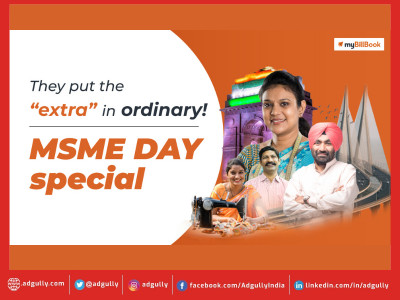
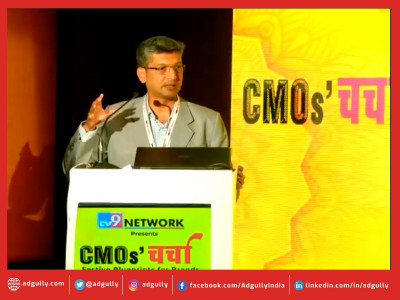
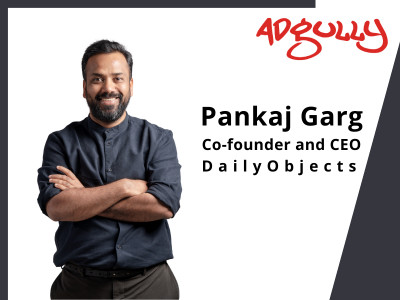
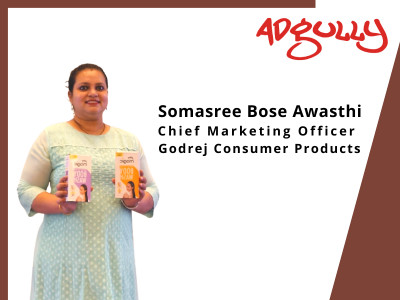



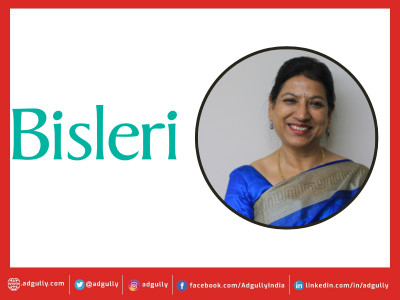




Share
Facebook
YouTube
Tweet
Twitter
LinkedIn